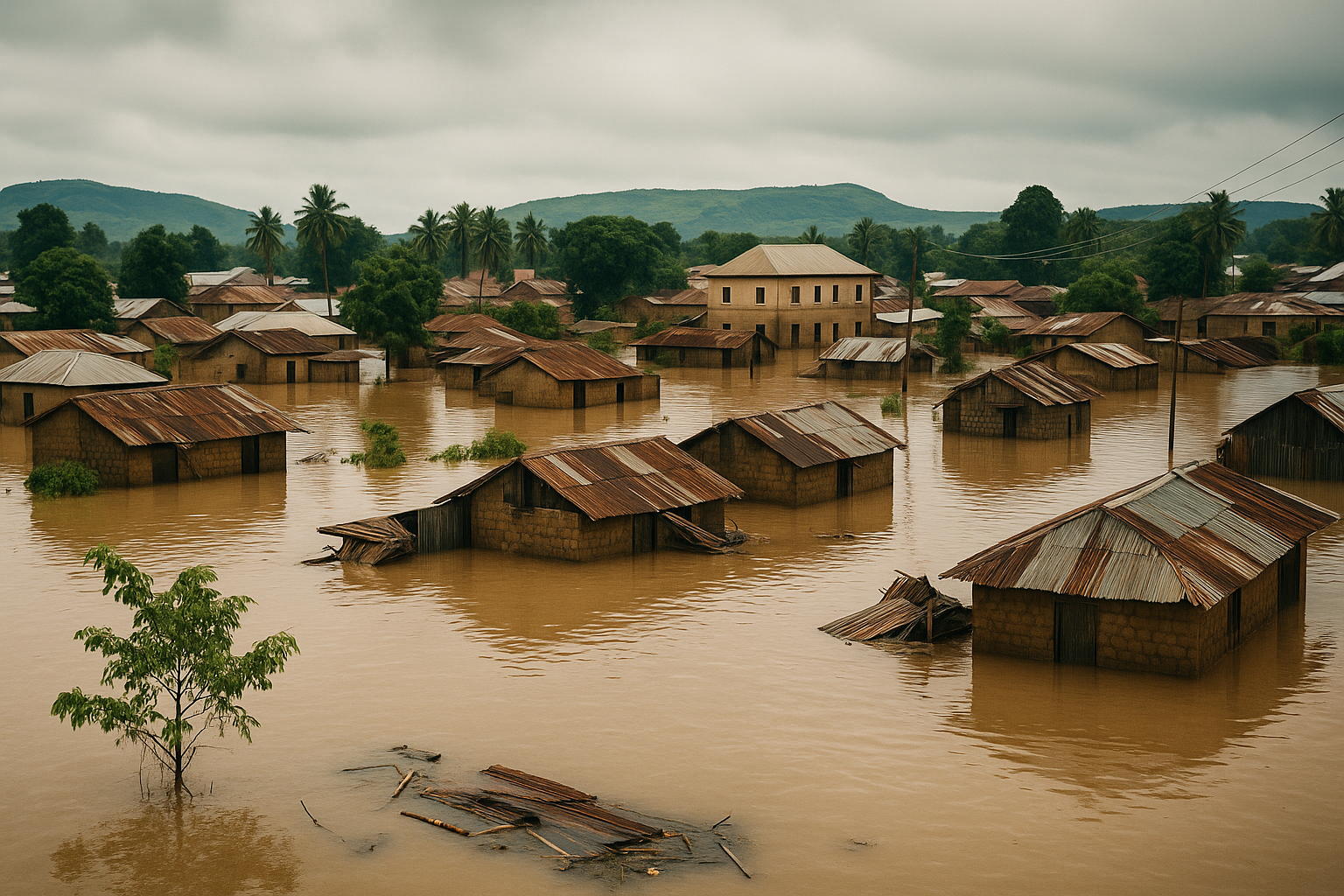Mokwa Flood Disaster: More than 200 Feared Dead Amid Niger State Humanitarian Crisis
Mokwa, Niger State – June 16, 2025
A storm of destruction hit Mokwa in Niger State last month when massive flooding caused by torrential rains has killed more than 200 individuals. What started out like a seasonal shower soon turned out to be one of the deadliest natural disasters to hit the area in recent times.
The raging floodwaters, stoked for days by non-stop rain, inundated homes, croplands, and public property, causing destruction everywhere. Whole families were washed away in the torrents, and thousands of citizens were compelled to evacuate from homes, either flooded or totally wrecked.
Displacement and Despair
Local authorities report that more than 3,000 people have been displaced, with many now taking refuge in overcrowded school buildings and churches converted into temporary shelters. Humanitarian organizations have begun delivering emergency aid, but access to remote communities remains a significant challenge due to washed-out roads and collapsed bridges.
“This is more than a flood. It’s a humanitarian emergency,” said Aminu Idris, a spokesperson for Niger State Emergency Management Agency (NSEMA). “We are doing everything we can, but the scale of destruction is beyond what we anticipated.”
Government Response and Warnings
A state of emergency has been announced in Niger State’s Mokwa and various nearby areas. Federal assistance is being brought in and essential relief items such as food, safe water, and medicines are being distributed. The Nigerian Meteorological Agency (NiMet) meanwhile announced flood alerts for additional affected areas as the rainy season gains force.
The experts attribute the calamity to urban planning and climate change, citing that plugged drainage, deforestation, and uncontrolled construction along floodplains were primarily responsible for its extent.
A Call for Action
Tragedy hit Mokwa like a wake-up call reminding Nigeria that it is a climate disaster-prone country. The stakeholders are now calling for long-term planning through better infrastructure, pre-emergent alert systems for floods, and school-based disaster education.
“This must be a wake-up call,” said Dr. Hadiza Musa, an environmental researcher at the University of Abuja. “We can’t afford to treat flooding as an annual occurrence without changing the conditions that cause it.”
The Road Ahead
As search operations persist, families scour for missing relatives and seek to rescue what remains of their lives. The extent of the Mokwa flood could take weeks to tally, but for most residents, recovery will be a long time coming.






